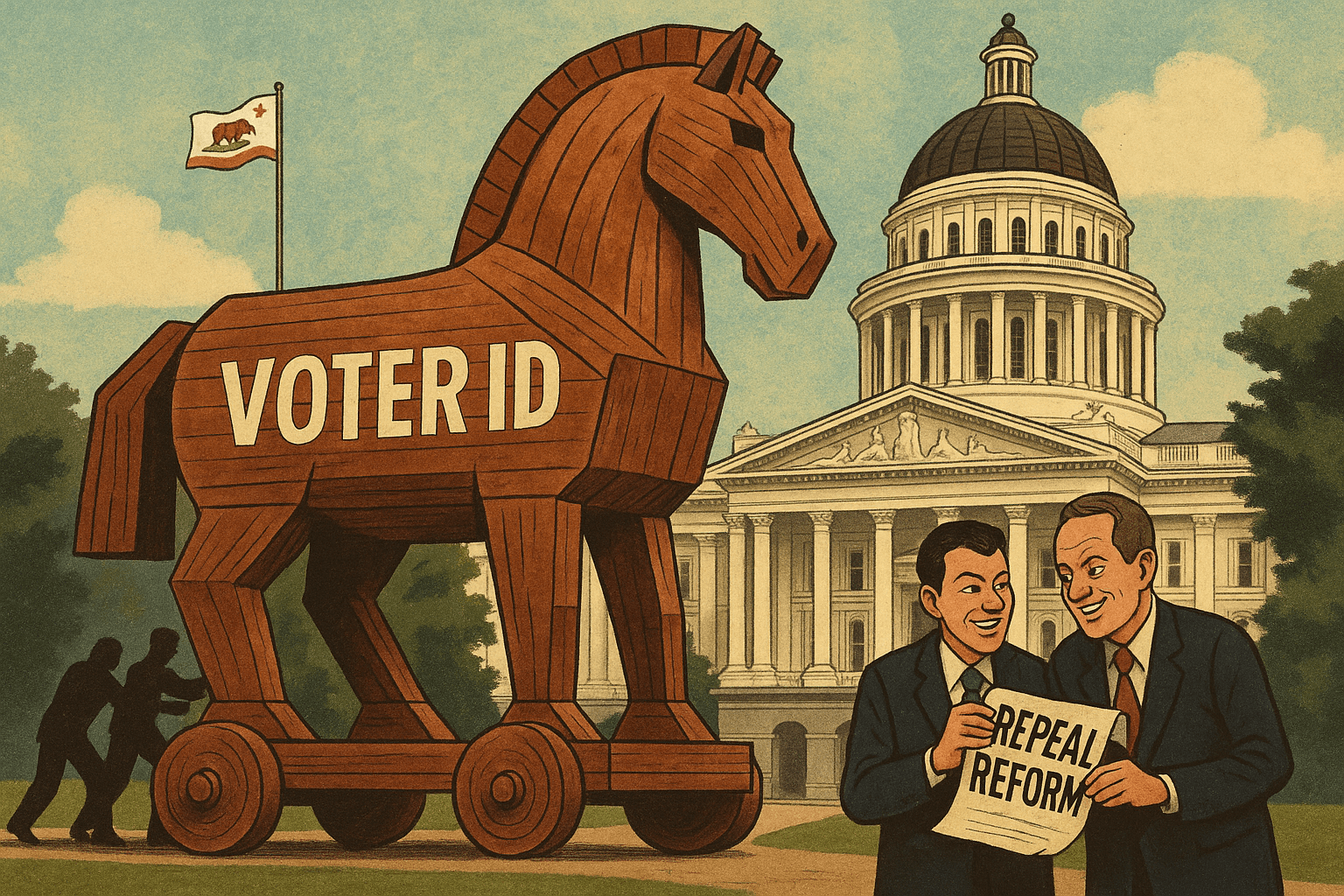Trojan Horse: How CA Democrats Might Use Voter ID to Turn Back the Clock

Voter IDs are a requirement in almost every democracy in the world from Europe to Mexico.
But legitimate concerns over voter suppression efforts in the American south led to a different ethic inside Democratic Party circles. Over time, Voter ID plans have been presumptively conflated with claims of “voter suppression” without much analysis of the actual impact of proposals.
To be sure “Voter ID” efforts have been thinly disguised efforts at voter suppression, routinely including language that would have dispirit and likely unconstitutional impacts on specific voters.
In California, of course, the subject is intertwined with both racial bias and heated disagreements over immigration.
Election officials insist that voter rolls are legitimate. Democrats agree. Republicans insist, however, that those rolls are cluttered with ineligible voters.
There are dozens of arguments over detail. What should qualify as an ID? How do you handle mail in ballots? And those details have always served to stymie any effort to introduce Voter ID in California.
Assemblyman Carl DeMaio has led the most recent effort to put Voter ID on the ballot. The final language of his proposal just went public and it has caused quite a stir.
The commotion is not over how “bad” the language is. Quite the contrary, the panic is over how precise and thoughtful the proposal is. It adheres to California’s single subject rule. It thoughtfully addresses mail ballot issues, embraces the most liberal criteria for voter ID qualifications, and appears to meet all constitutional standards.
But most importantly, it polls with 80% approval. Reaction amongst Democrat operatives can only be reasonably described as panic.
Polling is already in the street testing a counter measure for a November 2025 Special Election that would bundle a Voter ID plan with a repeal of the nonpartisan primary and reapportionment reforms.
Special interests have repeatedly succeeded in scuttling reform efforts by placing competing measures on the ballot. But the Special Election gambit is an effort to preempt DeMaio’s initiative and use its popularity to accomplish the real goal to undo nonpartisan reforms that are unpopular with political operatives in both parties.
This is exactly the kind of insider politics that two decades ago led to a series of voter revolts starting with term limits and culminating with voter approval of nonpartisan elections and reapportionment reform.
This generation of Legislators were not around to see how quickly things turned on incumbents in both parties. But if the partisan operators convince the Legislature to take this dark turn that could change on a dime.
I previously wrote about the need to “reform the reform” by expanding California’s nonpartisan Top Two system to a More Choice Top Five system.
More partisanship is the last thing we need. Returning to partisan primaries would disenfranchise more than a third of California voters who choose not to join a Party and empower political operatives at the expense of both Democratic and Republican rank and file voters.
The cynical ploy to bundle these regressive plans with a Voter ID proposal they hate, but know will pass, is precisely the kind of skullduggery that voters targeted in the reforms.
The State Supreme Court should (but only might) throw such a plan out based on its obvious conflict with the State’s Constitution’s Single Subject Rule.
But they should not have to. The Legislature should simply do the right thing in the first place. Leave Voter ID to its own fate. If you want to improve the electoral system don’t go backwards.








